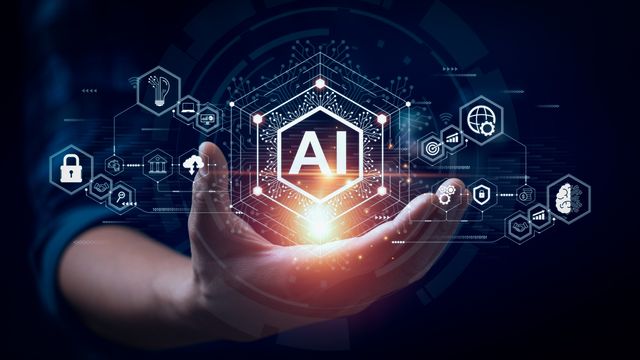What Are the Ethical Implications of Artificial Intelligence?
Artificial Intelligence (AI) is reshaping the world as we know it, with applications ranging from healthcare and education to finance and entertainment. However, as we continue to integrate AI into various aspects of our lives, it is essential to consider the ethical implications that come with this technology. In this article, we will explore the ethical concerns surrounding AI, providing a comprehensive analysis and addressing some of the most pressing questions.
Key Takeaways
- AI’s ethical implications include issues of bias, fairness, privacy, transparency, job displacement, autonomous weapons, and healthcare decision-making.
- Ensuring fairness in AI requires careful consideration of data and techniques to mitigate bias.
- Protecting privacy while using AI for surveillance necessitates establishing regulations and guidelines.
- Achieving transparency and accountability in AI systems involves developing explainable AI models and clear guidelines.
- Addressing job displacement due to AI requires proactive measures such as retraining programs and social safety nets.
- Ethical concerns surrounding autonomous weapons highlight the need for international regulations and norms.
- The ethical use of AI in healthcare demands collaboration and accountability measures.
- Promoting ethical design and development practices is essential to creating AI systems that benefit society.
1. Bias and Fairness
One of the most significant ethical concerns related to AI is the issue of bias and fairness. AI systems are trained on vast amounts of data, and if this data contains biases, the AI can perpetuate and even amplify these biases. For example, if an AI system is trained on historical hiring data that favors certain demographics over others, it may continue to make biased hiring decisions. Ensuring fairness in AI requires careful consideration of the data used and the development of techniques to mitigate bias.
2. Privacy and Surveillance
AI has the potential to enhance surveillance capabilities, raising concerns about privacy. With advanced facial recognition systems and data analysis techniques, AI can track and monitor individuals in ways that were previously unimaginable. This increased surveillance can lead to a loss of privacy and raise ethical questions about the balance between security and individual rights. It is crucial to establish regulations and guidelines to protect privacy while leveraging AI for security purposes.
3. Transparency and Accountability
Another ethical concern is the lack of transparency and accountability in AI systems. Many AI algorithms operate as “black boxes,” meaning their decision-making processes are not easily understood or explained. This opacity can make it challenging to hold AI systems accountable for their actions, especially in critical areas such as healthcare, criminal justice, and finance. Ensuring transparency and accountability requires developing explainable AI models and establishing clear guidelines for their use.
4. Job Displacement and Economic Impact
AI has the potential to automate many tasks currently performed by humans, leading to job displacement and economic disruption. While AI can create new job opportunities, it can also eliminate existing ones, particularly in industries such as manufacturing, transportation, and customer service. Addressing the ethical implications of job displacement requires proactive measures, such as retraining programs and social safety nets, to support workers affected by automation.
5. Autonomous Weapons and Warfare
The development of AI-powered autonomous weapons raises significant ethical concerns. These weapons have the potential to operate without human intervention, making life-and-death decisions on the battlefield. The use of autonomous weapons poses ethical questions about accountability, proportionality, and the potential for unintended consequences. Establishing international regulations and norms for the use of AI in warfare is essential to address these concerns.
6. AI and Decision-Making in Healthcare
AI has the potential to revolutionize healthcare by improving diagnostics, treatment plans, and patient outcomes. However, the use of AI in healthcare also raises ethical questions about decision-making and accountability. For example, if an AI system makes a medical error, who is responsible? Ensuring the ethical use of AI in healthcare requires collaboration between AI developers, healthcare professionals, and policymakers to establish guidelines and accountability measures.
7. Ethical Design and Development of AI
The ethical implications of AI extend to its design and development. AI developers must consider ethical principles such as fairness, accountability, and transparency throughout the entire AI lifecycle. This includes ensuring diverse representation in AI development teams, conducting ethical impact assessments, and involving stakeholders in the design process. Promoting ethical design and development practices is essential to creating AI systems that benefit society.
Conclusion
The ethical implications of AI are vast and complex, touching on various aspects of society and individual lives. Addressing these ethical concerns requires a collaborative effort involving AI developers, policymakers, and society as a whole. By prioritizing fairness, transparency, accountability, and inclusivity in AI design and development, we can harness the potential of AI while mitigating its risks. Establishing clear regulations and guidelines is essential to ensure that AI serves the best interests of humanity.
FAQs
- What is bias in AI, and why is it a concern?
- Bias in AI refers to the presence of systematic errors or prejudices in AI algorithms and data that lead to unfair outcomes. It is a concern because biased AI can perpetuate and amplify existing societal inequalities, leading to unfair treatment of individuals or groups.
- How can we ensure privacy while using AI for surveillance purposes?
- Ensuring privacy while using AI for surveillance requires establishing regulations and guidelines that balance security needs with individual rights. This includes implementing data protection measures, limiting data collection, and ensuring transparency in surveillance practices.
- What are the challenges of achieving transparency in AI systems?
- Achieving transparency in AI systems can be challenging due to the complexity of AI algorithms and the “black box” nature of some models. Overcoming these challenges requires developing explainable AI models and establishing clear guidelines for the use and accountability of AI systems.
- How can society address the economic impact of AI and job displacement?
- Addressing the economic impact of AI and job displacement requires proactive measures such as retraining programs, social safety nets, and policies that support workers transitioning to new roles. It also involves fostering innovation and creating new job opportunities in emerging industries.
- What are the ethical concerns surrounding the use of autonomous weapons?
- The ethical concerns surrounding autonomous weapons include accountability for decisions made by AI systems, proportionality in the use of force, and the potential for unintended consequences. Establishing international regulations and norms for AI in warfare is essential to address these concerns.
- How can AI improve decision-making in healthcare, and what are the ethical challenges?
- AI can improve decision-making in healthcare by enhancing diagnostics, treatment plans, and patient outcomes. However, the ethical challenges include ensuring accountability for AI errors, maintaining patient privacy, and establishing guidelines for the responsible use of AI in healthcare.
- What principles should guide the ethical design and development of AI?
- The ethical design and development of AI should be guided by principles such as fairness, accountability, transparency, and inclusivity. This includes ensuring diverse representation in AI development teams, conducting ethical impact assessments, and involving stakeholders in the design process.

